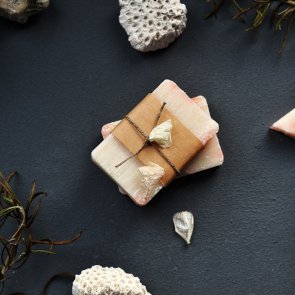Benefits of Washing Your Face With Olive Oil Soap
 Many beauticians claim that washing your face with soap is completely wrong because it dries your skin out and affects its natural pH balance. However, there’s soap, and then there’s soap. Cheap mass market soaps can indeed be bad for your skin, but handmade soaps based on natural oils are another thing. For example, women of the Mediterranean have used olive oil soap for centuries to take care of their skin.
Many beauticians claim that washing your face with soap is completely wrong because it dries your skin out and affects its natural pH balance. However, there’s soap, and then there’s soap. Cheap mass market soaps can indeed be bad for your skin, but handmade soaps based on natural oils are another thing. For example, women of the Mediterranean have used olive oil soap for centuries to take care of their skin.Soap is one of the oldest detergents known to humanity. It is made by treating vegetable oil or animal fat with lye. Today, animal fat is rarely used in commercial soaps, and most soaps are based on a mixture of vegetable oils, sometimes with added surfactants such as sodium laureth sulfate or magnesium laureth sulfate.
Mass market toilet soaps are usually derived from cheap oils and often contain synthetic surfactants, dyes and fragrances. You can safely use such soaps to wash your hands (unless you have very dry or sensitive skin), but if you apply them to your face they can cause dehydration, tightness, itching, and flaking. The best soaps for skincare are based on high-quality oils, such as olive oil or coconut oil, and do not contain any unnecessary additives.
Olive oil has been used as a base ingredient for soaps in the Mediterranean region for millennia. One of the oldest types of olive oil soap is Aleppo soap. Originating from the Levant region of Syria, it is made with olive oil, lye and laurel oil using the hot process. The crusaders brought olive oil soap to Europe in the 11th century. Olive-oil-based soap produced in Spain has become known as Castile soap, and a similar soap produced in France is called Marseille soap.
So, what are the benefits of washing your face with olive oil soap? First and foremost, olive oil is one of the richest sources of vitamin E. This vitamin is a strong antioxidant that neutralizes free radicals, prevents premature skin aging, and acts as a natural protector.
Olive oil soap has a lower pH than most commercial soaps, making it suitable even for those with dry or sensitive skin. It provides delicate cleansing, softens the skin texture, helps lock in moisture, and protects the skin against free radicals and environmental damage. Considered one of the mildest of all soaps, olive soap leaves the skin soft and supple.
Of course, much depends on what kind and brand of soap you choose. Before buying a soap, have a look at the ingredient list first. Pure olive oil soap will contain olive oil and sodium hydroxide (lye), or sodium olivate/potassium olivate (salts of olive oil fatty acids). Ingredients that must be avoided include sodium lauryl/laureth sulfate, magnesium laureth sulfate, and other chemicals (in fact, if the name of an ingredient has the word “sulfate” in it, it’s probably bad for your skin).
In addition to olive oil, soap can contain other natural ingredients that have a positive effect on the skin. For example, many herbal extracts and essential oils have antiseptic and soothing properties. They balance the skin’s pH, prevent irritation and inflammation, inhibit the growth of pathogenic microbes on the skin surface, and help combat acne. White clay (kaolin) and activated charcoal enhance the soap’s cleansing effect. They draw impurities out of the pores and absorb excess oil from the skin surface.
However, if you have dry or sensitive skin, you’d better stick to a fragrance-free soap with no additional ingredients, just to be on the safe side. Unscented handmade soap with olive oil is one of the best skin cleansers out there. In addition, it’s cheaper than most commercial face washes because olive oil and lye definitely aren’t the most expensive ingredients.